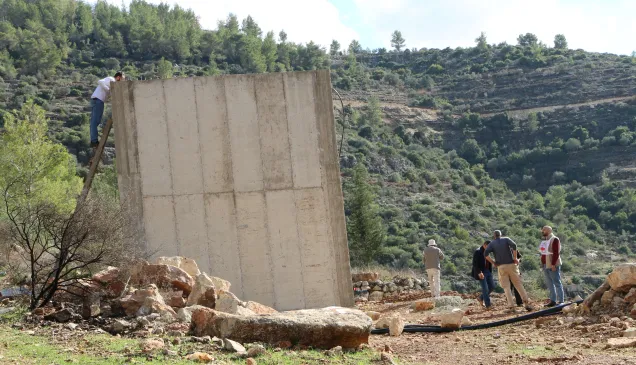Gaza's fishermen set sail for their daily catch.
Work at sea: The daily struggle of Gaza’s fishermen
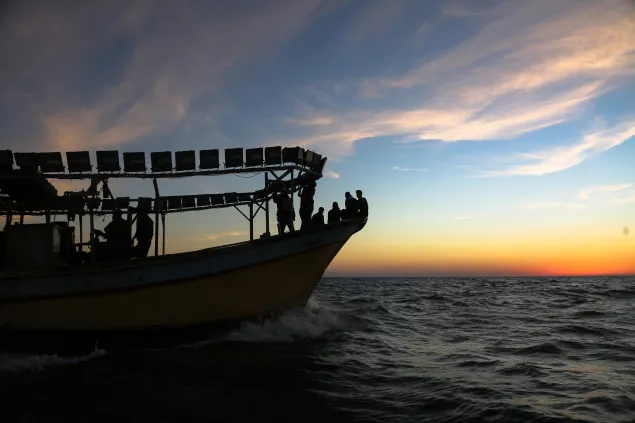
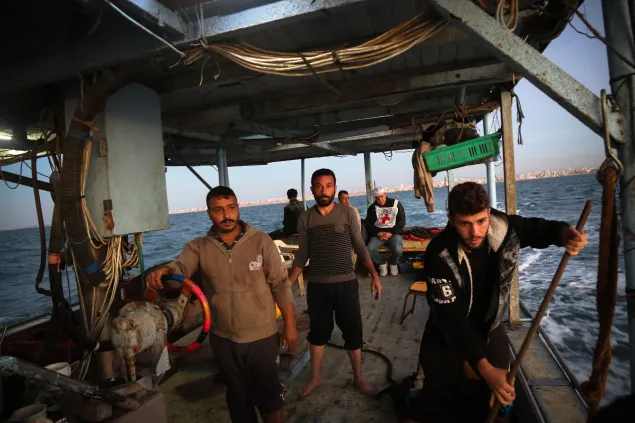
At the beginning of their journey, the fishermen try to find a proper spot to park their boats. Since the area they fish in is limited, they struggle to find a spot where a decent catch is possible.
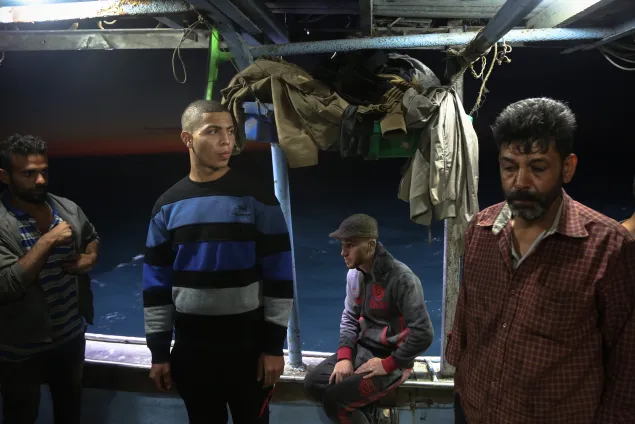
Each fishing round takes about three hours of waiting after throwing the fishnets into the sea. To attract the fish, they use strong lights. After the fish are caught, the real work begins.
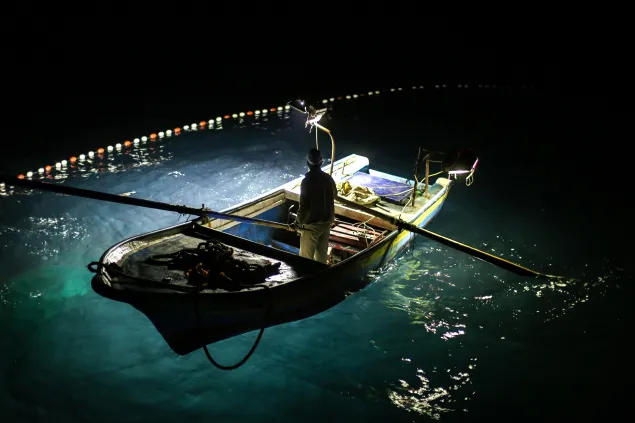
The small boat hovers around a bigger boat with a strong lighting in order to attract a bigger school of fish.
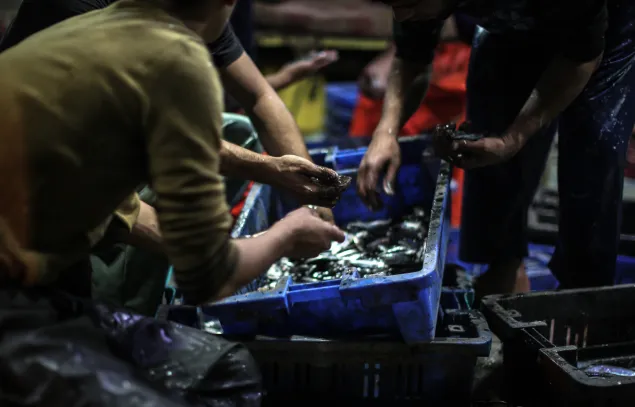
After pulling in the nets, the men separate the different types of fish, preserving them in a fridge inside the boat.
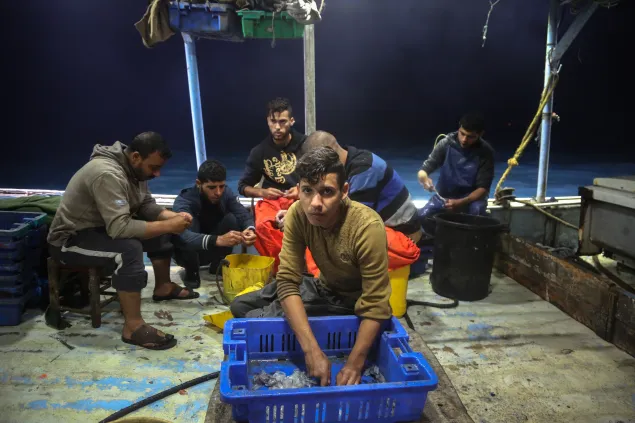
Fahmi Bakr, 20 years old, studies law at Al-Azhar University in Gaza. He is newly married, and works as a fisherman to pursue his education and support his family at the same time. "Earning a living is extremely hard nowadays, especially with the limited resources," he said. "I work all night long and putting my life at danger, but unfortunately, I cannot meet the basic needs of life with the little amount of fish we get. Sometimes, I work all night in vain and I fish nothing."
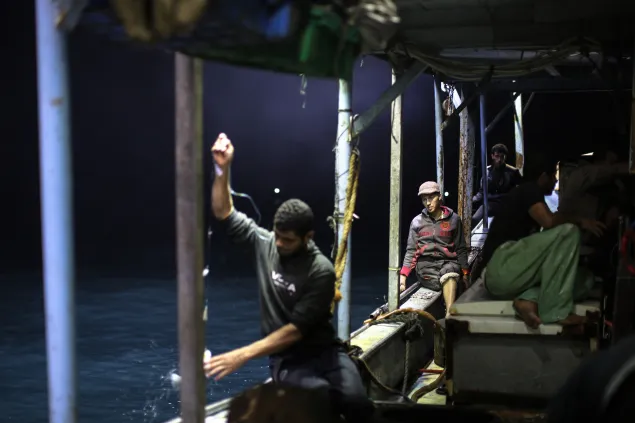
Fishermen on the boat fishing use rods after using the fishnets. They use this alternative when they don’t get the catch that covers the expenses of the trip, including fuel and workers' fees.
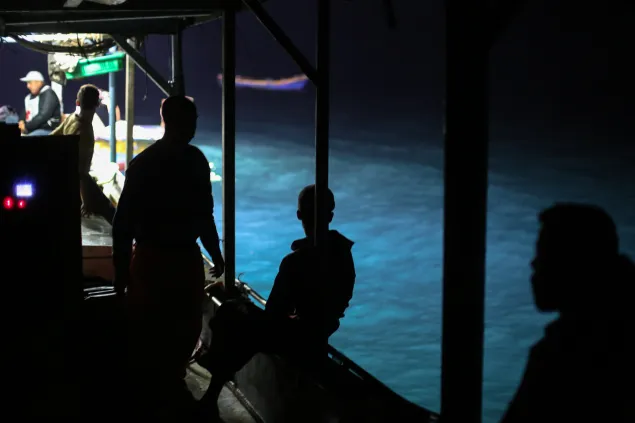
After each round of fishing, the Palestinian fishermen clean and fix their nets to throw them back in again.
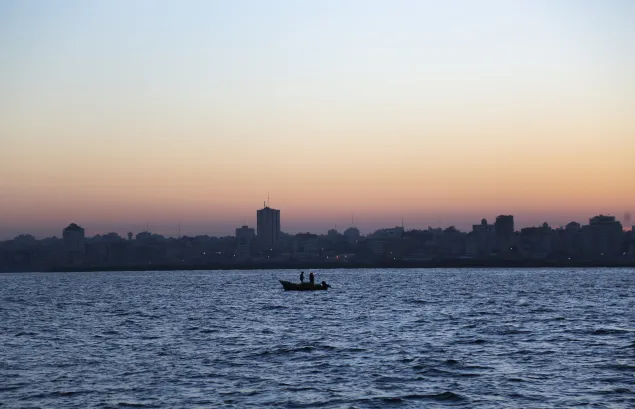
After a 14-hour night, the fishing boat heads back to port. Their meager catch won't even cover the fuel and salaries of everyone on board.
Gaza's fishermen are only allowed to fish within six nautical miles off the coast, due to the Israeli naval blockade. Fishing is an essential part of Gaza's economy, but restrictions have undermined the fishing sector for the past ten years.
Fishermen's lives are never easy, but expanding the fishing zone make a major difference in the lives and livelihoods of Gaza's 4,000 fishermen - and their families.

